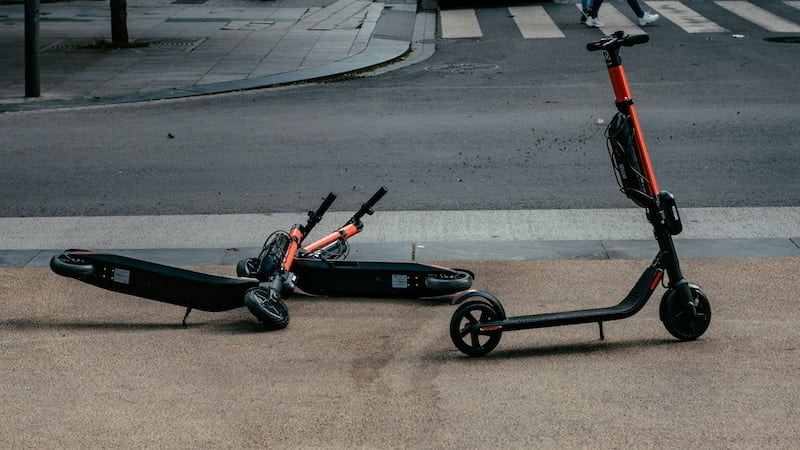
Gelsenkirchen was the first major city in Germany to impose a ban on e-scooters. This may be a tough decision, but it is also justifiably consistent. The two affected providers, Bolt and Tier, showed little willingness to compromise. A comment.
The city of Gelsenkirchen has been in a dispute with the e-scooter providers Bolt and Tier for some time. The background: The city administration had banned electric scooters because the operators refused to obtain registration from their users via ID card or driver's license.
Gelsenkirchen wanted to be able to punish misconduct more quickly and easily, as e-scooters pose an increasingly greater danger in road traffic. Bolt and Tier filed a lawsuit against the decision. But the Gelsenkirchen Administrative Court has now decided that the ban is legal for the time being – and with good reason!
Why is Gelsenkirchen imposing a ban on e-scooters?
With the ruling, around 350 rental scooters must disappear from the city by April 20, 2024. The use of private scooters remains permitted – and that’s okay. One of the biggest problems with e-scooters is not only the constantly increasing number of accidents, but also the anonymity when using the rental scooters.
The result: users drive more riskily and use electric scooters irresponsibly. As a result, accident statistics continue to skyrocket. According to ADAC, the police registered 8,260 accidents with e-scooters in 2022 alone. This corresponds to an increase of 49 percent compared to the previous year. Eleven people died; around 8,800 were injured.
Last year there was also a tragic death in Gelsenkirchen. A cyclist died because he drove over a carelessly discarded e-scooter and then fell.
This brings us to another major problem of rental scooters. Because the goal of then Transport Minister Andreas Scheuer (CSU) of revolutionizing mobility in cities and making it more climate-friendly backfired.
Rental scooters are dangerous, annoying and not environmentally friendly
The opposite is actually the case: e-scooters hinder road traffic because they can be parked indiscriminately. In addition to registering with an ID card or driving license, it would make sense to have clearly defined stations where you can rent the scooters and return them.
But even then there remains a problem because: E-scooters are not sustainable. According to a study by the University of North Carolina, CO2 emissions per kilometer are half as high as those of a mid-range car and therefore significantly higher than those of an electric bicycle or even a diesel bus with high utilization.
The evaluation includes the emissions of the entire production and operating process. The performance of rental e-scooters is also so bad because they are regularly collected by vans to be charged and then distributed again in the cities.
There doesn't necessarily have to be a general ban. But without political regulation and the operators' willingness to cooperate, not only CO2 but also blood will be on their hands.
Notice: This article is a comment. This is a journalistic form of presentation that explicitly reflects the opinion of the author and not the entire magazine. The comment does not claim to be objective, but is intended to stimulate the formation of opinions and is protected as an opinion piece by Article 5 of the Basic Law.
Also interesting:
Source: https://www.basicthinking.de/blog/2024/04/19/stadt-gelsenkirchen-verbietet-e-scooter-richtig-so/


